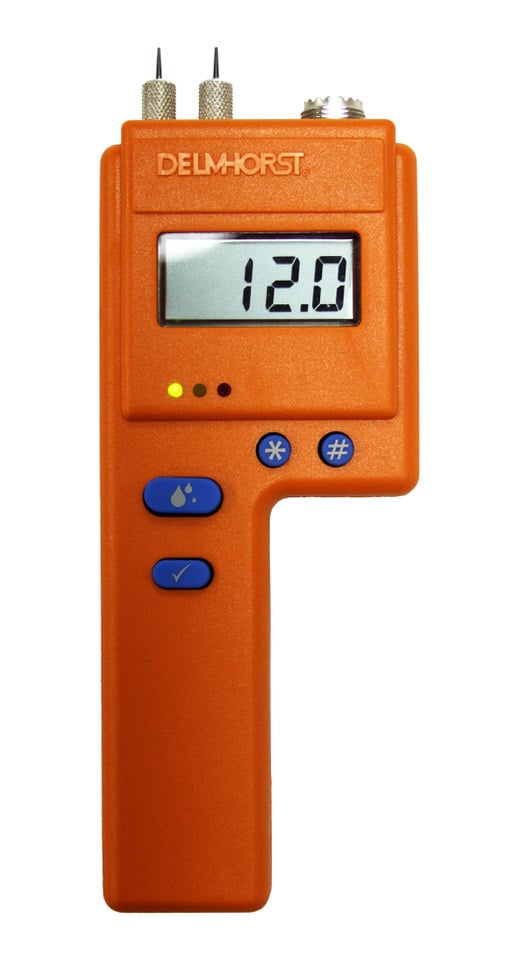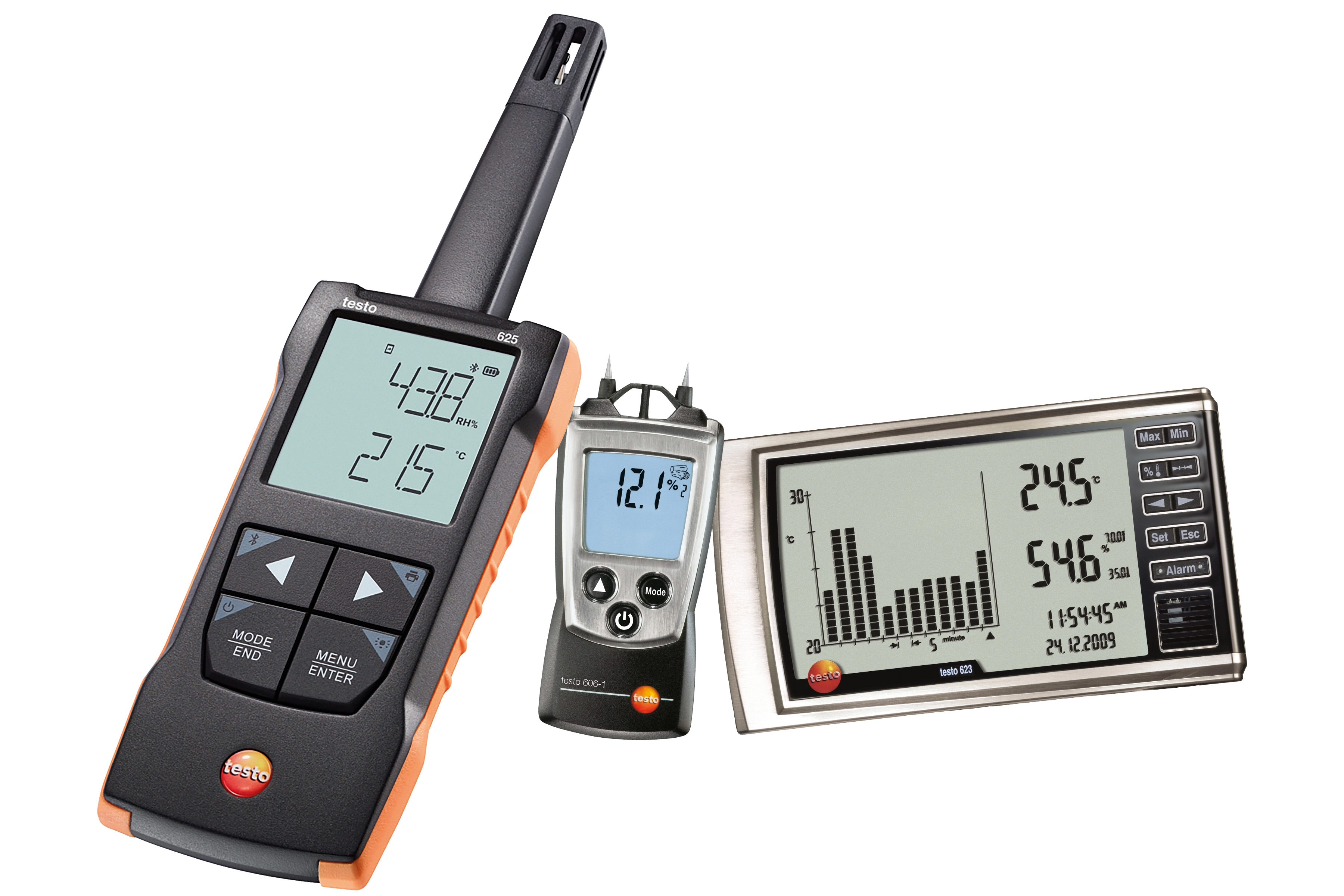Exactly how to Utilize a Moisture Meter to Find Surprise Water Damages in Your Building
Exactly how to Utilize a Moisture Meter to Find Surprise Water Damages in Your Building
Blog Article
The Ultimate Guide to Dampness Meters: A Comprehensive Summary and How They Can Conserve You Money
In the realm of structure maintenance, building and construction, and different industries, the value of accurately gauging dampness degrees can not be overemphasized. Moisture meters serve as essential devices in finding and keeping an eye on moisture content in products, aiding in stopping costly problems and ensuring the top quality of products. Comprehending the subtleties of different kinds of moisture meters, their applications, and the prospective cost-saving advantages they provide can be a game-changer for specialists and companies alike. Discovering exactly how these tools can not only enhance procedures but likewise add to financial cost savings is a trip worth starting.
Kinds of Moisture Meters
Various types of wetness meters are offered for different applications in different markets. One typical kind is the pin-type wetness meter, which determines the electric resistance in between 2 pins placed into a material. This type appropriates for wood, drywall, and other building materials. Pinless moisture meters, on the various other hand, usage electro-magnetic sensing unit plates to check a bigger area without triggering damage to the material's surface area. Moisture Meter. These meters are ideal for quickly assessing moisture degrees in huge locations such as walls and floorings.

Moreover, there are also specialized wetness meters designed for certain materials like dirt, hay, or grain. These meters give precise dampness readings customized to the distinct buildings of the material being examined. Infrared moisture meters gauge the thermal homes of a product to identify its dampness content non-invasively, making them beneficial for applications where pin or pinless meters might not be ideal. Comprehending the various sorts of wetness meters readily available can help sectors pick the most proper device for their particular wetness dimension needs.

Advantages of Utilizing Dampness Meters
Wetness meters use invaluable advantages in precisely keeping track of and examining dampness degrees in varied products and environments (Moisture Meter). One of the primary benefits of utilizing moisture meters is the prevention of prospective damages triggered by excess moisture. By discovering and attending to high wetness degrees early, dampness meters aid to stop mold and mildew development, rot, and architectural damages in structures, conserving both money and time on repair services. Furthermore, dampness meters help in making certain the top quality of products throughout building or manufacturing processes. By accurately measuring moisture content, these devices aid keep the stability of wood, drywall, concrete, and other materials, reducing the threat of defects or failures.
Moreover, using wetness meters can lead to increased energy performance. In agricultural settings, dampness meters play an essential function in enhancing crop returns by allowing farmers to check dirt dampness levels and make notified irrigation choices.
How to Select the Right Dampness Meter
When choosing a dampness meter, it's necessary to guarantee that the meter is ideal for see this site the certain material you will certainly be testing. Various products have varying electric homes that can affect wetness readings, so picking a meter created for your material is vital for accurate outcomes. By thoroughly evaluating these aspects, you can choose a dampness meter that satisfies your demands and supplies exact wetness dimensions for your projects.
Correct Techniques for Dampness Meter Usage

Cost Savings Via Dampness Meter Applications
Just how can the calculated use of moisture meters lead to considerable expense financial savings across numerous markets? Moisture meters play an essential role in price savings by preventing potential damages and guaranteeing quality assurance in various industries. In the agriculture market, moisture meters help in figuring out the optimal time for collecting crops, preventing excess or over-drying wetness that can influence the end product's high quality. This accurate surveillance helps farmers stay clear of unnecessary losses and optimize their yield.
In a similar way, in construction, wetness meters aid avoid expensive problems by discovering dampness degrees in structure materials, such as wood or concrete, which can bring about structural problems otherwise addressed immediately. By identifying issue locations early on, specialists can take rehabilitative measures to prevent considerable repairs or replacements, eventually saving money and time.
In addition, in the food processing industry, wetness meters are necessary for monitoring product quality and guaranteeing compliance with security laws. By properly measuring moisture content in foodstuff, visit site makers can stop perishing, keep quality, and lower waste, causing substantial price financial savings. On the whole, the critical application of dampness meters is a beneficial financial investment that can bring about significant cost decreases and boosted performance content across different markets.
Conclusion
In conclusion, moisture meters are important tools for spotting and measuring dampness degrees in different materials. By making use of the appropriate wetness meter and complying with appropriate techniques, users can properly stop costly problems created by excess moisture. Spending in a top quality dampness meter can result in significant price savings in the long run by recognizing prospective issues beforehand and allowing prompt removal. Ultimately, dampness meters are necessary instruments for keeping the integrity and long life of materials and frameworks.
Dampness meters serve as vital tools in discovering and monitoring moisture material in products, aiding in stopping pricey damages and guaranteeing the top quality of products. Infrared moisture meters gauge the thermal residential properties of a product to determine its wetness material non-invasively, making them beneficial for applications where pin or pinless meters might not be ideal.Moisture meters provide vital benefits in properly keeping an eye on and analyzing dampness degrees in varied products and environments. In agricultural settings, moisture meters play an important function in maximizing plant returns by making it possible for farmers to check dirt dampness degrees and make educated watering choices.In final thought, wetness meters are useful devices for determining and finding dampness degrees in different materials.
Report this page